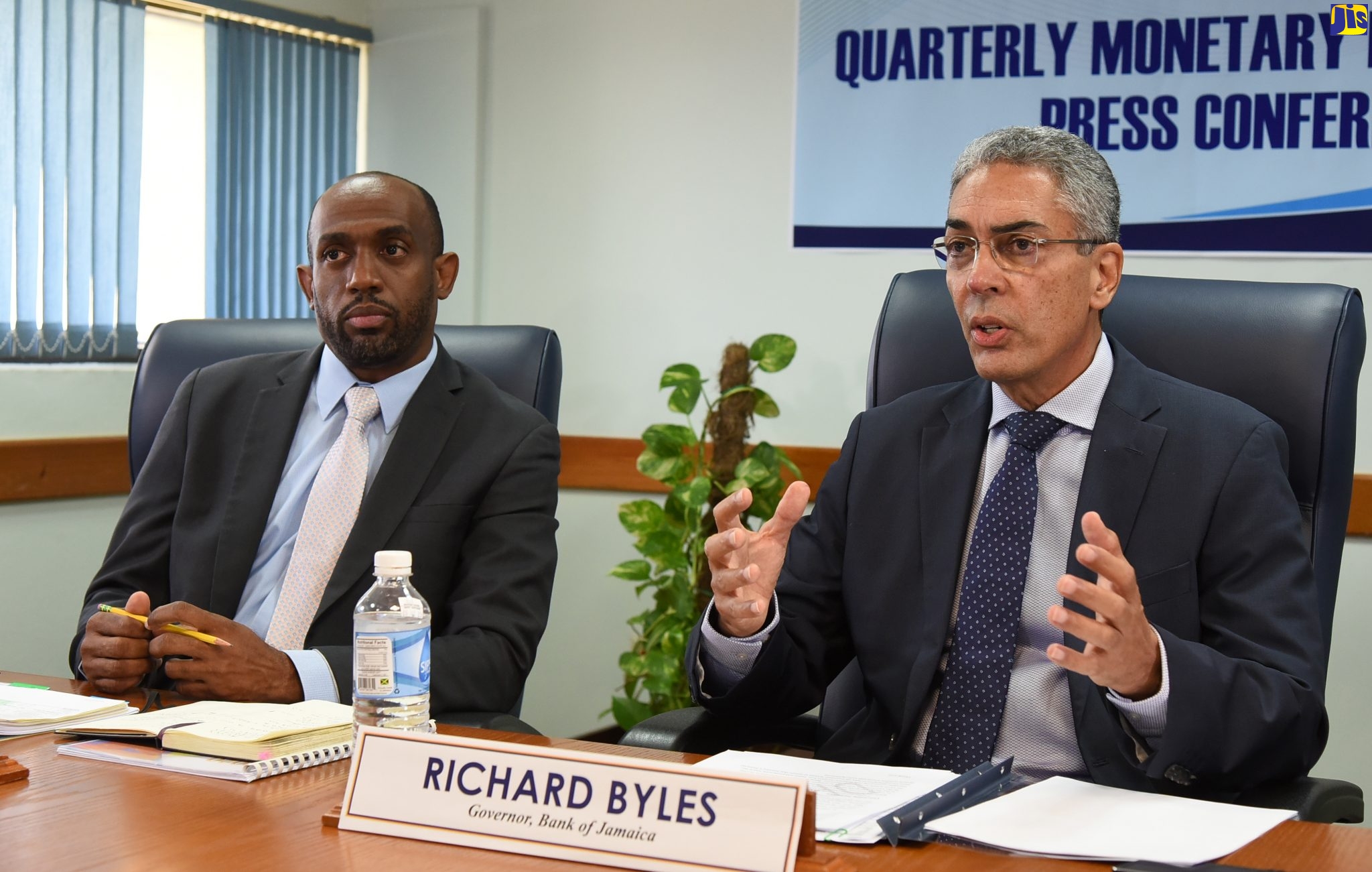Gradual Recovery In Economic Activity To Improve Current Account Deficit
By: , May 21, 2020The Key Point:
The Facts
- Additionally, Mr. Byles said the Government deemed it “prudent” to apply to the International Monetary Fund (IMF) for contingency support under the rapid financing facility (RFI), resulting in the disbursement of US$520 million.
- Mr. Byles said the loan is currently reflected in the Central Bank’s gross reserves, which now total some US$4 billion, pointing out that “the Government can also use these RFI resources for budget support, should the need arise”.
The Full Story
Bank of Jamaica (BOJ) Governor, Richard Byles, says the anticipated gradual recovery of economic activity from the impact of the coronavirus (COVID-19) is expected to result in improvements in the current account deficit of the balance of payments (BOP).
He was speaking at the Central Bank’s digital quarterly press conference held on Wednesday (May 20).
Mr. Byles noted that due to drastic changes in the pattern of economic activity in Jamaica and abroad, the current account deficit is projected to worsen by more than five percentage points of gross domestic product (GDP) in the current fiscal year to 7.5 per cent, from the 2.3 per cent estimated in 2019/20.
“This worsening mainly reflects the impact of the sudden stop in tourist arrivals and the slowdown in remittance inflows,” he said.
He said that, in contrast, the merchandise trade deficit is projected to improve due to a decline in imports, particularly fuel, consequent on lower oil prices, which fell from US$55 per barrel during the last fiscal year, to US$30 currently.
Additionally, Mr. Byles said the fall in the incomes of Jamaicans, coupled with a decline in foreign direct investment (FDI)-related projects, is expected to constrain the importation of non-fuel consumer goods, raw materials and capital goods.
He argued that the assumed gradual recovery of economic activity “implies that the current account deficit will also improve gradually over the ensuing two years”.
Mr. Byles noted, however, that if events unfold as envisaged “this shock to the external accounts implies that we have a significant financing gap, and is reflected in the sharp depreciation of the Jamaica dollar over the past two months, despite the BOJ providing the market with over US$300 million”.
He underscored the need for the BOJ to “pace our interventions”, otherwise the Bank could end up selling more than US$1 billion to the market over the course of the current fiscal year, warning that this is “unsustainable”.
“Be assured, however, that with careful management, the net international reserves of the Bank of Jamaica [which stood] at US$3.1 billion at the end of April 2020, are adequate to weather this storm,” he said.
Additionally, Mr. Byles said the Government deemed it “prudent” to apply to the International Monetary Fund (IMF) for contingency support under the rapid financing facility (RFI), resulting in the disbursement of US$520 million.
The loan was approved by the IMF Executive Board when the members met on Friday, May 15.
Mr. Byles said the loan is currently reflected in the Central Bank’s gross reserves, which now total some US$4 billion, pointing out that “the Government can also use these RFI resources for budget support, should the need arise”.
The resources also include non-borrowed reserves amounting to some US$2.8 billion.

